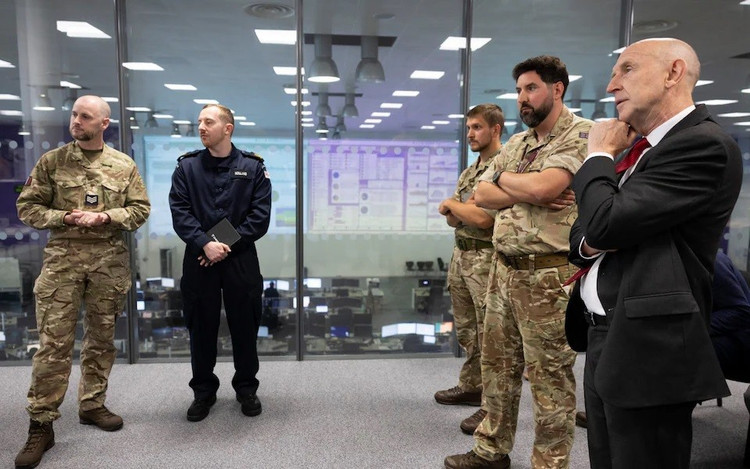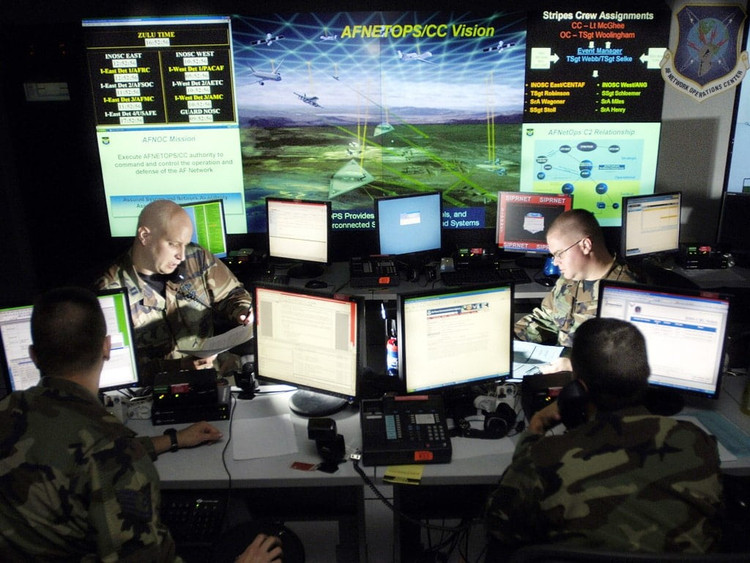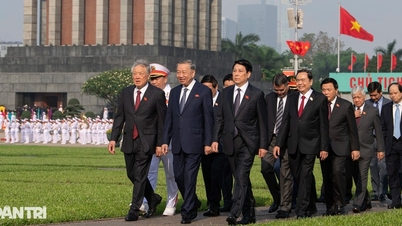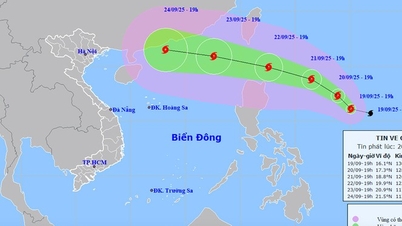The UK defence secretary has announced that the British military will spend more than £1 billion on artificial intelligence and a new cyber warfare unit.
British Defence Secretary John Healey has pledged to give the Armed Forces more cyber powers to target hostile states such as Russia, warning that "the keyboard has become a weapon of war".

Strike operations will be carried out through the Space and Cyber Command, which will also oversee a £1bn investment in upgraded targeting systems using an artificial intelligence “kill network” connecting military systems.
Mr Healey said the command, which will be included in the Government 's Strategic Defence Review (SDR) published on Monday, would set a "new standard" in defence.
Asked if the Department of Defense was increasing its ability to attack hostile nations, Mr. Healey replied: “Yes. Cyber Command is part of eliminating duplication, setting new standards, giving new powers for both defense and offense.”
The comments are the clearest confirmation yet from any minister of Britain's desire to carry out cyber attacks, alongside defending its interests against foreign cyber attacks.

Britain invests £1 billion to boost cyberweapons against hostile states.
Earlier at the British Army's Cyber Command, Mr Healey said: "We are under increasing daily attacks, and this is the nerve centre of the British Army, helping us defend against these attacks. The keyboard has become a weapon of war."
Mr Healey added that the SDR had acknowledged that the war in Ukraine had demonstrated that “the winners will not only be better equipped and better trained, but also better connected and also able to innovate ahead of their adversaries. That is exactly what our new cyber command will allow us to do.”
Cyber warfare 'on the rise'
For the past five years, the UK Cyber Command has been conducting offensive cyber operations on behalf of the military, as part of a joint venture between the UK's General Security of Military Intelligence (GCHQ) and the Ministry of Defence.

Britain and Russia have had ongoing tense conflicts in cyberspace. Graphics: The Time
The unit will now coordinate offensive cyber capabilities with the new Cyber and Electronic Command, which will fight adversaries online and direct defensive operations.
Details of Britain’s cyber capabilities remain secret, but other countries’ actions have ranged from spying on officials to installing software that can crash industrial machinery.
Countries including Russia, China, as well as Iran and North Korea, are all believed by the UK to have hackers operating espionage operations aimed at breaking into sensitive information online or engaging in online ransomware attacks.
In the past two years, the Department of Defense has suffered 90,000 cyber attacks – double the number in 2023. They say these attacks mostly come from Russia and China.
Both Russia and China have repeatedly denied the allegations, calling them baseless.
Source: https://khoahocdoisong.vn/anh-thanh-lap-biet-doi-ai-doi-pho-nga-post1556515.html




![[Photo] Secret Garden will appear in Nhan Dan Newspaper's Good Morning Vietnam 2025 project](https://vphoto.vietnam.vn/thumb/1200x675/vietnam/resource/IMAGE/2025/9/19/cec307f0cfdd4836b1b36954efe35a79)
![[Photo] National Assembly Chairman Tran Thanh Man holds talks with Speaker of the Malaysian House of Representatives](https://vphoto.vietnam.vn/thumb/1200x675/vietnam/resource/IMAGE/2025/9/19/5cb954e3276c4c1587968acb4999262e)
![[Photo] Spreading Vietnamese culture to Russian children](https://vphoto.vietnam.vn/thumb/1200x675/vietnam/resource/IMAGE/2025/9/19/0c3a3a23fc544b9c9b67f4e243f1e165)
![[Photo] Sea turtle midwives](https://vphoto.vietnam.vn/thumb/1200x675/vietnam/resource/IMAGE/2025/9/19/9547200fdcea40bca323e59652c1d07e)

























































































Comment (0)